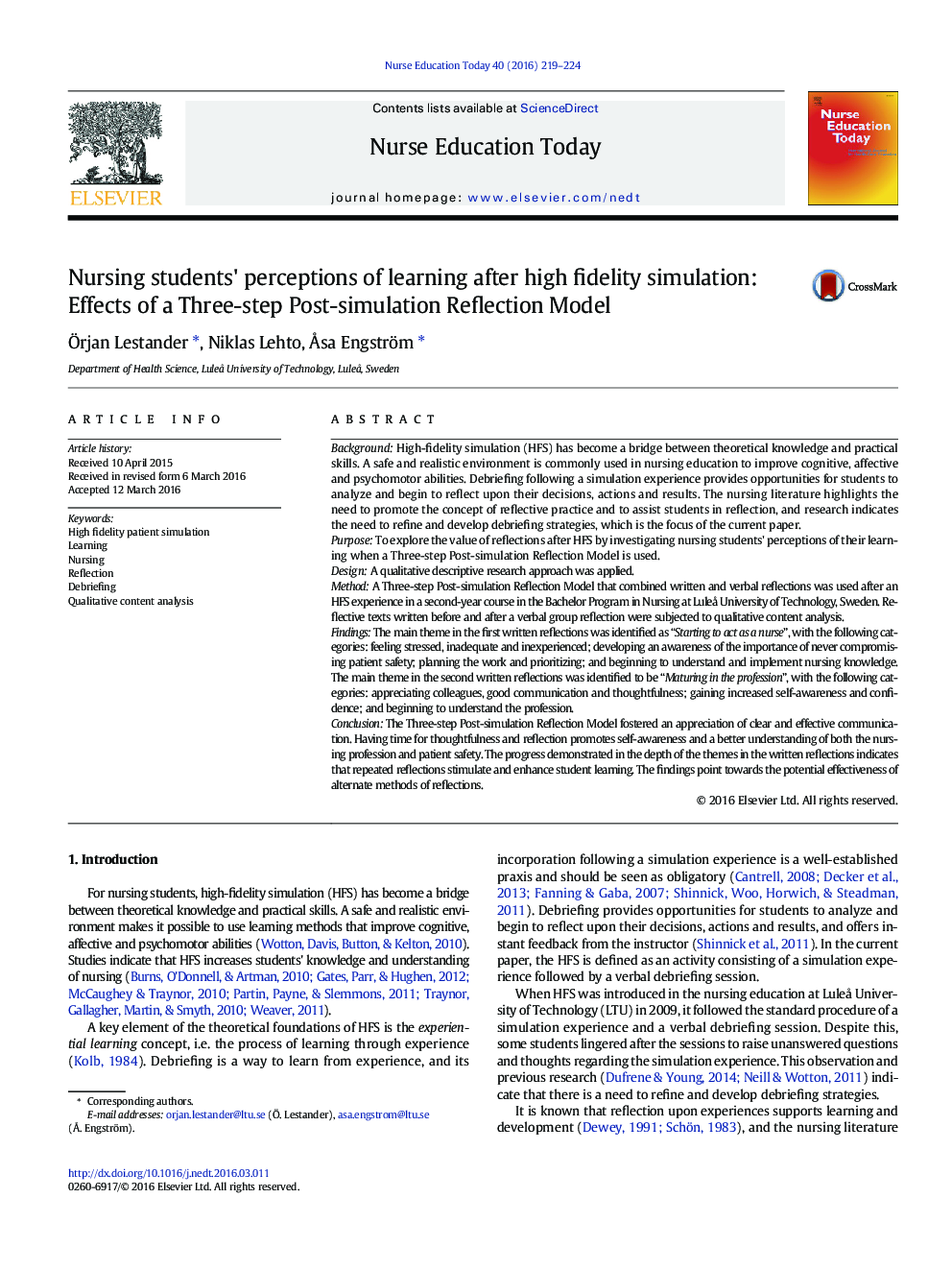| کد مقاله | کد نشریه | سال انتشار | مقاله انگلیسی | نسخه تمام متن |
|---|---|---|---|---|
| 367871 | 621548 | 2016 | 6 صفحه PDF | دانلود رایگان |
• Repeated reflections after High-fidelity Simulation stimulate and deepen student learning.
• A Three-step Post-simulation Reflection Model that combine written and verbal reflections can function as a complement to the current mode of debriefing.
• During the reflection process, the nursing students focus changes from “Starting to act as a nurse” to “Maturing in the profession.
BackgroundHigh-fidelity simulation (HFS) has become a bridge between theoretical knowledge and practical skills. A safe and realistic environment is commonly used in nursing education to improve cognitive, affective and psychomotor abilities. Debriefing following a simulation experience provides opportunities for students to analyze and begin to reflect upon their decisions, actions and results. The nursing literature highlights the need to promote the concept of reflective practice and to assist students in reflection, and research indicates the need to refine and develop debriefing strategies, which is the focus of the current paper.PurposeTo explore the value of reflections after HFS by investigating nursing students' perceptions of their learning when a Three-step Post-simulation Reflection Model is used.DesignA qualitative descriptive research approach was applied.MethodA Three-step Post-simulation Reflection Model that combined written and verbal reflections was used after an HFS experience in a second-year course in the Bachelor Program in Nursing at Luleå University of Technology, Sweden. Reflective texts written before and after a verbal group reflection were subjected to qualitative content analysis.FindingsThe main theme in the first written reflections was identified as “Starting to act as a nurse”, with the following categories: feeling stressed, inadequate and inexperienced; developing an awareness of the importance of never compromising patient safety; planning the work and prioritizing; and beginning to understand and implement nursing knowledge. The main theme in the second written reflections was identified to be “Maturing in the profession”, with the following categories: appreciating colleagues, good communication and thoughtfulness; gaining increased self-awareness and confidence; and beginning to understand the profession.ConclusionThe Three-step Post-simulation Reflection Model fostered an appreciation of clear and effective communication. Having time for thoughtfulness and reflection promotes self-awareness and a better understanding of both the nursing profession and patient safety. The progress demonstrated in the depth of the themes in the written reflections indicates that repeated reflections stimulate and enhance student learning. The findings point towards the potential effectiveness of alternate methods of reflections.
Journal: Nurse Education Today - Volume 40, May 2016, Pages 219–224
